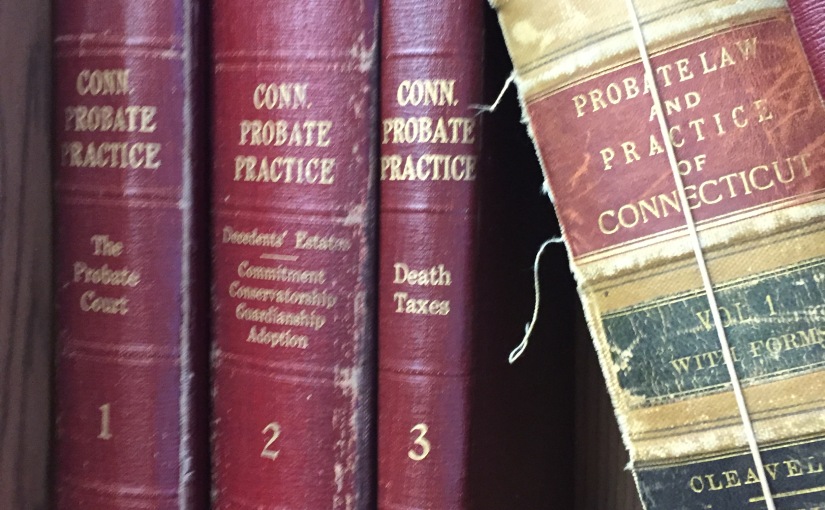In my previous article in this series on fiduciaries, I examined situations where a fiduciary (trustee, executor, administrator, guardian of the estate or conservator of the estate) may be removed. This article continues the discussion on removal of fiduciaries.
Connecticut law includes one more situation that may result in the removal of a fiduciary: where all the beneficiaries request that the fiduciary be removed, the court agrees it’s in the best interest of the beneficiaries to remove the fiduciary, and there is a suitable successor fiduciary available.
It’s also important in that situation to determine that removal of the fiduciary isn’t contrary to an important term of the will or trust. Sometimes, the person who creates a trust chooses a specific trustee or group of trustees for their expertise, maturity, or reliability. Perhaps the trust beneficiaries lack financial sophistication, have creditor issues or lack maturity. The purpose of the trust for those beneficiaries might be to provide a reliable income stream for a set period of time, usually many years.
However, the beneficiaries may “want their money now” and are unwilling to wait for the trustee to make distributions in accordance with the trust. A television commercial from a few years ago comes to mind; in it, people are yelling from their windows and front porches “It’s my money and I want it now!” In that case, there could well be conflict between the beneficiaries, who may want the trustee to make distributions to them, and the trustee, who is unwilling to make distributions in excess of what the trust allows.
Another example of a situation where this might happen is when the fiduciary doesn’t communicate with the beneficiaries, file documents with the court in a timely way, or make required distributions to the beneficiaries.
In addition to state law, a trust document usually includes provisions for when a trustee may be removed. Trusts and wills can be very complex; a fiduciary only has the authority to perform the tasks and responsibilities that are in the trust or will.
Likewise, how a trust may be managed is usually in the trust document. Whenever there is a question about a trust, the trust document should be the first place to look for guidance.
It’s common for the trust to create a mechanism for removal of a trustee. Such provisions are usually highly customized, depending on the purpose of the trust, the preferences of the trust’s creator, and requirements of federal and state law.
Anyone who is a fiduciary should consult with a knowledgeable estate planning attorney for guidance. As a probate judge for 15 years, I’ve seen fiduciaries create problems because they didn’t understand their responsibilities and acted contrary to the provisions of the trust, will or law. Nearly all of them chose not to retain an attorney to guide them.
Being a fiduciary is a serious responsibility, and it’s all too easy for well-meaning people to create problems because they failed to retain competent legal counsel. Breach of fiduciary duty can have serious financial consequences: fiduciaries have personal liability. In some cases, there can be criminal liability for breach of fiduciary duty.
THIS ARTICLE IS FOR INFORMATIONAL PURPOSES ONLY. IT IS NOT INTENDED TO BE AND SHOULD NOT BE RELIED UPON AS LEGAL ADVICE. FOR ADVICE AS TO YOUR SPECIFIC SITUATION PLEASE CONSULT WITH A QUALIFIED ATTORNEY.
Copyright © 2017 Domenick N. Calabrese. All rights reserved. No part of this article may be disseminated, reproduced or used without the express written consent of the author.
For more articles and presentations by Dom Calabrese, visit his website at https://DCalLaw.com

